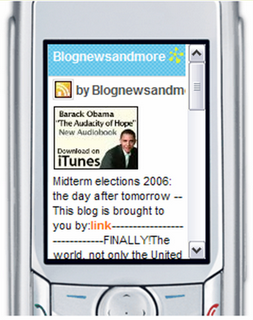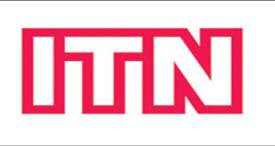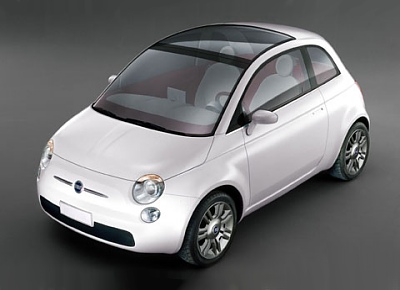The US vs. John Lennon
"Peace Wallpapers" for your cellphone:
--------------------------------------------------------
 New York, the Big Apple, was already in the destiny of John Lennon since when Apple Records was founded in 1968 as part of The Beatles' Apple Corps project.
New York, the Big Apple, was already in the destiny of John Lennon since when Apple Records was founded in 1968 as part of The Beatles' Apple Corps project.
At this time, The Beatles were contracted to Parlophone in the United Kingdom and Capitol Records in the United States. In a new recording deal, EMI and Capitol agreed to distribute Apple Records until 1975. Apple owned the rights to records by artists they signed, while EMI retained ownership of The Beatles' records, though issuing them under the Apple label. Apple Records own the rights to all of The Beatles' videos and movie clips.
After that, nobody could believe that the Apple campaign "Think different" could brought so many benefits to both Apple (see today's Ipods as a symbol of Music independence) an to the cause of the peace (we don't have to forget that the rainbow flag doesn't only represents the gay and lasbian community but also "peace"). (AFP) "The US vs. John Lennon" ( http://www.theusversusjohnlennon.com/site/) was a hit at the recent Venice International Film Festival.
"The thing about John Lennon is that he represented life, and that is a good thing. Richard Nixon, and George Bush, represent death, and that is a bad thing."
Vidal is one of more than 30 intellectuals, activists and journalists, including Carl Bernstein, Noam Chomsky, former New York governor Mario Cuomo, Walter Cronkite, Tariq Ali featured in the film.
That, and a soundtrack featuring Lennon's anti-war anthems like "War is Over, If You Want It," "Revolution" and "Imagine" make the film compelling.
The majority of the film's songs, 37 of the 40, come from his post-Beatles career and serve to advance the narrative and to offer commentary.
"We literally searched the world for every last bit of film of him. We wanted to make a movie that had no narrator, we wanted John to tell his own story. You have him telling you the story every step of the way," said Leaf.
The documentary features Nixon telling the nation that US troops would be pulled out of Vietnam as local South Vietnamese allies gradually grew stronger, but refusing to give a date.
"One cannot help but appreciate that we've heard that script before," Leaf told a press conference in Venice where the film is being screened in the "Horizons" section.
There are obvious parallels too with the present day, "illegal wiretaps, constitutional rights being trampled and a war that isn't being fought for the reasons the president (Bush) said," Leaf added.
Although Leaf and Scheinfeld -- makers of biodocumentaries on Frank Sinatra and Bob Hope -- have been kicking around the idea for years, they could not find a backer for the film.
"It took the events of a post 9/11 America to give people the idea that this was a story that had a resonance now."
"We should remember that John and Yoko didn't really have to do what they did. They were already the most famous couple in the world.
"We live in an age where celebrity and media are omnipresent but only in the presence of 'selling something'. What John and Yoko did was sell peace."
John Lennon was shot and killed outside his home in New York on December 8, 1980.
--------------------------------------------------------
 New York, the Big Apple, was already in the destiny of John Lennon since when Apple Records was founded in 1968 as part of The Beatles' Apple Corps project.
New York, the Big Apple, was already in the destiny of John Lennon since when Apple Records was founded in 1968 as part of The Beatles' Apple Corps project.At this time, The Beatles were contracted to Parlophone in the United Kingdom and Capitol Records in the United States. In a new recording deal, EMI and Capitol agreed to distribute Apple Records until 1975. Apple owned the rights to records by artists they signed, while EMI retained ownership of The Beatles' records, though issuing them under the Apple label. Apple Records own the rights to all of The Beatles' videos and movie clips.
After that, nobody could believe that the Apple campaign "Think different" could brought so many benefits to both Apple (see today's Ipods as a symbol of Music independence) an to the cause of the peace (we don't have to forget that the rainbow flag doesn't only represents the gay and lasbian community but also "peace"). (AFP) "The US vs. John Lennon" ( http://www.theusversusjohnlennon.com/site/) was a hit at the recent Venice International Film Festival.
The singer-songwriter's rage against American involvement in Vietnam resonating with relevance to today's Iraq's conflict.
Lennon's genius as an artist/activist shines through in "The US Vs John Lennon", by documentary makers David Leaf and John Scheinfeld, which was warmly applauded at its first screening in Venice.
The 99-minute film includes never-before-seen footage of Lennon and
Yoko Ono and traces the artist's transformation from pop star to anti-war activist. And it details the ways in which the tarnished administration of President
The 99-minute film includes never-before-seen footage of Lennon and
Yoko Ono and traces the artist's transformation from pop star to anti-war activist. And it details the ways in which the tarnished administration of President
Richard Nixon tried to silence him.
Perhaps the film's biggest achievement, in garnering footage of anti-war demonstrations of the 1960s and '70s, is to place Lennon's words and activism in the context of the time.
Leaf insisted the movie was not made with Iraq specifically in mind, but said Thursday: "There's no way to watch this film without hearing echoes of the past with what is going on in the world today."
The film has obvious resonances with the current era and the war in Iraq. By its championing of Lennon's poetic pacifism and political activism, the film-makers silently point up the lack of such a charismatic figure around which the world could gather now.
"The older people are asking 'Where is our John Lennon? Where is he now when we need him?'" says Leaf. "I answer them by saying 'He's in the movie. He would say to us 'It is up to us to bring peace'."
The current US president is mentioned only once in the film, but the remark by US writer/historian Gore Vidal drew applause from the audience.
Perhaps the film's biggest achievement, in garnering footage of anti-war demonstrations of the 1960s and '70s, is to place Lennon's words and activism in the context of the time.
Leaf insisted the movie was not made with Iraq specifically in mind, but said Thursday: "There's no way to watch this film without hearing echoes of the past with what is going on in the world today."
The film has obvious resonances with the current era and the war in Iraq. By its championing of Lennon's poetic pacifism and political activism, the film-makers silently point up the lack of such a charismatic figure around which the world could gather now.
"The older people are asking 'Where is our John Lennon? Where is he now when we need him?'" says Leaf. "I answer them by saying 'He's in the movie. He would say to us 'It is up to us to bring peace'."
The current US president is mentioned only once in the film, but the remark by US writer/historian Gore Vidal drew applause from the audience.
"The thing about John Lennon is that he represented life, and that is a good thing. Richard Nixon, and George Bush, represent death, and that is a bad thing."
Vidal is one of more than 30 intellectuals, activists and journalists, including Carl Bernstein, Noam Chomsky, former New York governor Mario Cuomo, Walter Cronkite, Tariq Ali featured in the film.
Representatives of the Nixon administration who tried to silence Lennon, G. Gordon Liddy and John Dean, also feature.
That, and a soundtrack featuring Lennon's anti-war anthems like "War is Over, If You Want It," "Revolution" and "Imagine" make the film compelling.
The majority of the film's songs, 37 of the 40, come from his post-Beatles career and serve to advance the narrative and to offer commentary.
"We literally searched the world for every last bit of film of him. We wanted to make a movie that had no narrator, we wanted John to tell his own story. You have him telling you the story every step of the way," said Leaf.
The documentary features Nixon telling the nation that US troops would be pulled out of Vietnam as local South Vietnamese allies gradually grew stronger, but refusing to give a date.
"One cannot help but appreciate that we've heard that script before," Leaf told a press conference in Venice where the film is being screened in the "Horizons" section.
There are obvious parallels too with the present day, "illegal wiretaps, constitutional rights being trampled and a war that isn't being fought for the reasons the president (Bush) said," Leaf added.
Although Leaf and Scheinfeld -- makers of biodocumentaries on Frank Sinatra and Bob Hope -- have been kicking around the idea for years, they could not find a backer for the film.
"It took the events of a post 9/11 America to give people the idea that this was a story that had a resonance now."
"We should remember that John and Yoko didn't really have to do what they did. They were already the most famous couple in the world.
"We live in an age where celebrity and media are omnipresent but only in the presence of 'selling something'. What John and Yoko did was sell peace."
John Lennon was shot and killed outside his home in New York on December 8, 1980.
See also "The Hollywood Report" review: http://hollywoodreporter.com/thr/reviews/review_display.jsp?vnu_content_id=1003086133
See also "Variety" review: http://www.variety.com/review/VE1117931406?categoryid=31&cs=1
See also "Rottentomatoes" review: http://www.rottentomatoes.com/m/us_vs_john_lennon/
































































